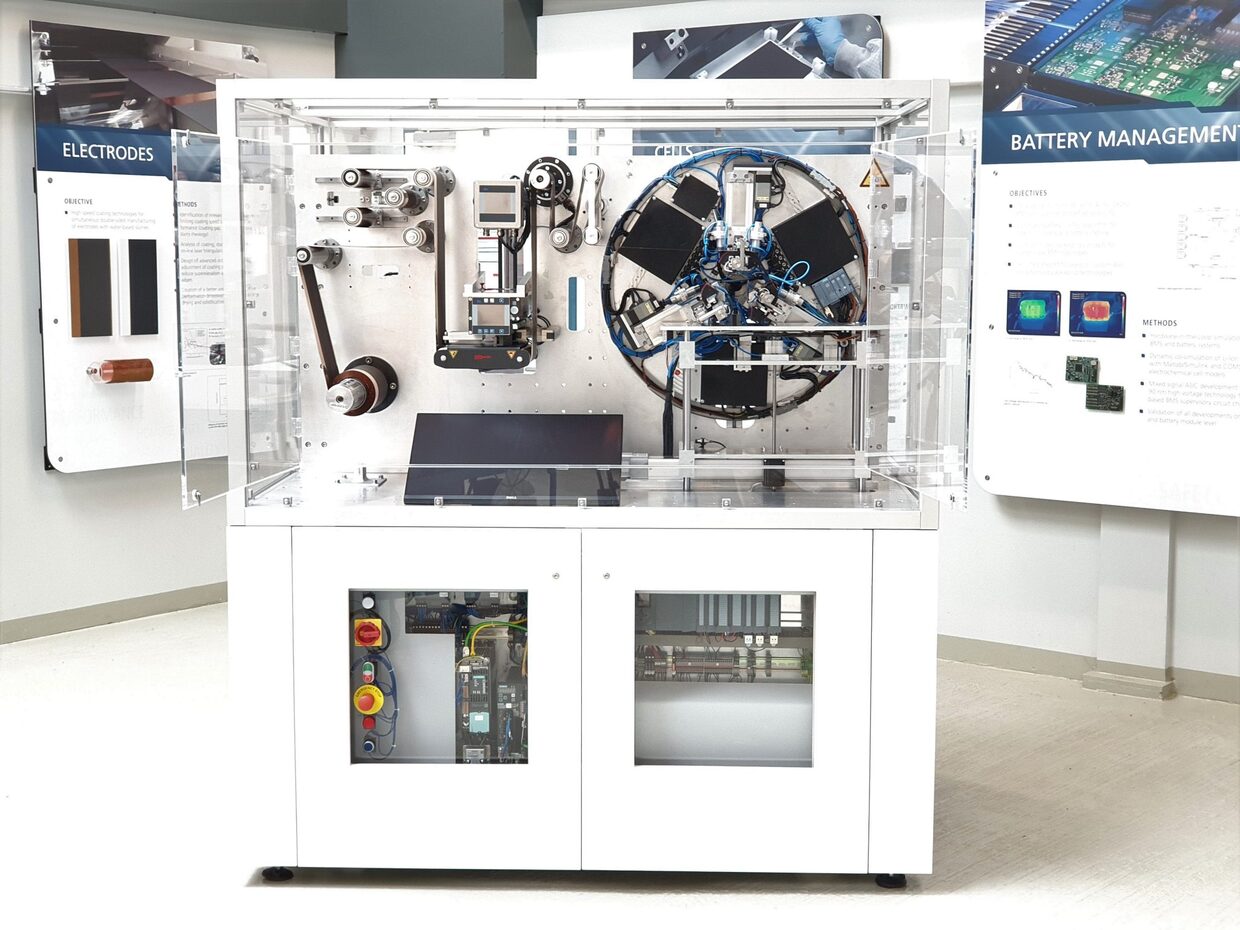Battery research

Lithium-ion technology is becoming increasingly powerful and is pushing into new fields of application. However, the growing demand for individual cell formats is currently being met by rigidly linked production lines that are not highly economical and at the same time flexible. In today's battery production, the active and inactive materials - consisting of anode, cathode and separator - are wound onto a winding mandrel. This procedure carries the risk that the battery may show signs of premature aging.
Within the ProZell research cluster, scientists at the wbk Institute of Production Science of KIT developed the 'Coil2Stack' process and thus a solution that enables the path from coil to stack. The production machine with movable axes, which was redesigned by the researchers, conveys, cuts and handles electrode and separator sheets of variable widths and lengths and stacks them precisely and without damage. The length of the individual sheets to be produced is freely selectable from 100 millimeters upwards, and the width of the sheets can be varied over the width of the coil. In addition, the position of the individual sheets can be varied during the stacking process itself. "The process enables the efficient, precise and flexible production of cell stacks. We accelerate the production process and at the same time make the production line independent of formats," says Prof. Dr.-Ing. Jürgen Fleischer director at wbk Institute of Production Science. (kla)
For more information please see the data sheet (German version).
For more information please see article No more one-size-fits-all: Coil2Stack fits battery cells of different shapes and sizes

